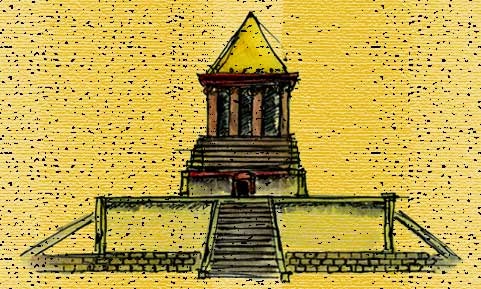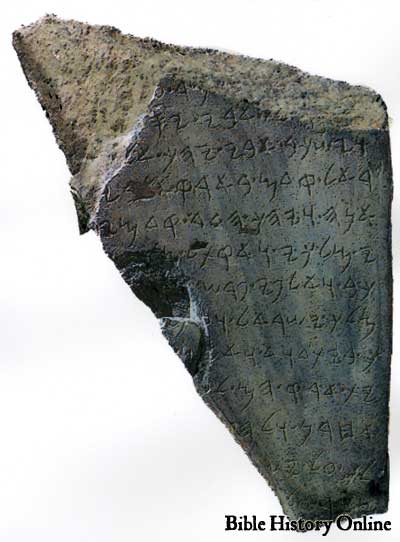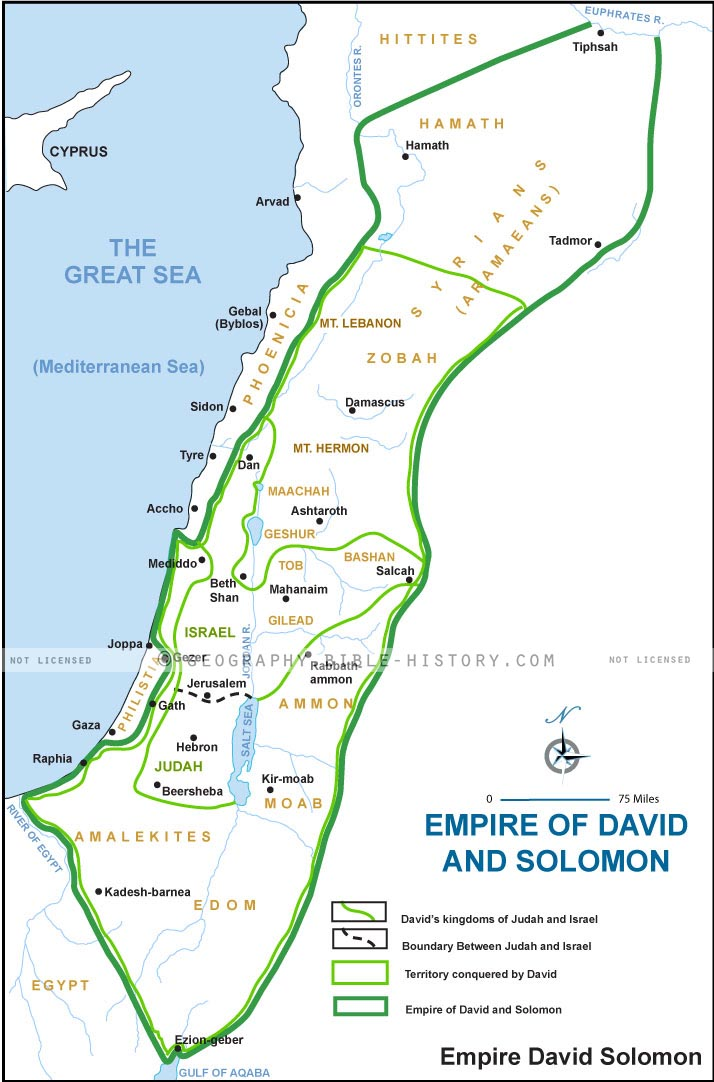The Book of Psalms
Psalm 2:7-9 - I will declare the decree: the LORD hath said unto me, Thou [art] my Son; this day have I begotten thee. Ask of me, and I shall give [thee] the heathen [for] thine inheritance, and the uttermost parts of the earth [for] thy possession. Thou shalt break them with a rod of iron; thou shalt dash them in pieces like a potter's vessel.
Psalm 8:3-4 - When I consider thy heavens, the work of thy fingers, the moon and the stars, which thou hast ordained; What is man, that thou art mindful of him? and the son of man, that thou visitest him?
Psalm
53:1-3 -
The Old Testament - A Brief Overview
Bible Survey - Psalms
Hebrew Name - Tehillim "praises"
Greek Name - Psalmoi (Greek form of the Hebrew mizmor, meaning instrument
songs)
Author - David (According to Tradition)
Date - 1056 BC Approximately
Theme - Give praise to the Lord
Types and Shadows - In Psalms Jesus is the One worthy of all praise

Painted Sketch of the Tomb of King David in Second Temple
Jerusalem
The title of the Book of Psalms in the Hebrew is sepher tehillim, meaning "book of praises", and indeed it is a fitting title. Every chapter is devoted to praise and thanksgiving from the author to Yahweh. This book clearly provides hope and confidence in the Lord as the maker of all things, the ultimate ruler of everything including the universe. He sees everything, knows everything, he has no limits, his presence is everywhere even in darkness there is no hiding and he is to be praised.
The Psalms are full of religious poetry and this was not uncommon in the ancient Near Eastern nations and peoples, and it was not surprising for the Hebrews to have produced such a powerful work. David was the recognized writer of the Psalms and they are many times referred to as the Psalms of David, although some of the chapters are not attributed to him in the notes.
The Psalms of David included Psalms 2-41 (except Psalms 33), Psalms 51-72, Psalms 108-110, and Psalms 138-145. David was no doubt a very skillful musician, the Bible mentions that he played the lyre for King Saul (1 Samuel 16:23), and the prophet Amos mentions that David invented instruments of music for worship of the Lord (Amos 6:5). There is also mention in the book of Samuel about David lamenting over Saul and Jonathan in a poetic fashion revealing his natural ability.
David went to many experiences in his life that he wrote about, especially when he was hunted down by King Saul from place to place like a "Partridge" in the wilderness. David was a young shepherd, he knew what it was like to tend his flock and to guard them from predators, this gave him a beautiful imagery for the Lord the great Shepherd. David was also a musician, a man of war, a king, a father, a husband, a friend, and many more. He repented over his sin in Psalm 51, acknowledging himself to be a sinner before God and God alone. God called David "a man after my own heart" and these experiences allowed him to share with the reader, a man who knew the heart of God. David was a master at finding different ways to praise God in life experiences and the book of Psalms is a wonder book for those who want to know how to please God. He was filled with the Holy Spirit (1 Samuel 16:13). There is no doubt the David wrote most of the Psalms, and the ones that he did not write are in his style as well.
Among the Psalms are two collections of Levitical Psalms, one is ascribed to the "sons of Korah" (Psalms 42-49), the other is ascribed to Asaph (Psalms 73-83 and Psalms 50). These exalt the tribes of Joseph. There are Psalms mentioning Moses, Haman, Ethan, and Solomon, some are anonymous (Psalm 33, 84-89). Some of the Psalms reveal a strong liturgical emphasis which might've been used in worship services, or on special days and do not mention the author (Psalms 91-100).
It is impossible to determine exactly how the Psalms were compiled and collected, and dating them is also difficult for most of the Psalms. Some of the Psalms are commemorating victories, while others are historical, remembering the Lord and God's people in past events. Other Psalms are prophetic and look to the future and the coming of the Messiah, as well as the heavenly kingdom. There are Psalms of affliction, lamentation and remorse over sin, as well as songs of Thanksgiving and trusting the Lord.
Some of the songs were chosen to be good for reciting on certain Jewish holy days, like the Sabbath, or Passover, the feast of Tabernacles, etc. There are titles on about 100 of the Psalms, the titles are so old that they cannot be understood even in the second century BC. Some of the titles point to the source of the Psalm, while others point to a certain purpose, or a certain melody, or something related to music.
Outline of the Book of Psalms
Psalms is divided into five books : Psalms 1-41, which witness to David's life and faith; Psalms 42-72, a group of historical writings; Psalms 73-99, ritual psalms; Psalms 90-106, reflecting pre-captivity sentiment and history; and Psalms 107-150, dealing with the captivity and return to Jerusalem. These five books are often regarded as the devotional counterpart to the five books of Moses (Genesis, Exodus, Leviticus, Numbers, Deuteronomy).
ARCHAEOLOGYHouse of David Inscription - Tel Dan Stele

1 Kings 2:11 -
And the days that
David reigned over Israel [were] forty years: seven years
reigned he in Hebron, and thirty and three years reigned he in
Jerusalem.
An inscription containing the words "house of David" was found on a black basalt stone slab called the Tel Dan Stele, from Tel Dan, Israel, 9th Century B.C.
Interesting facts about the Psalms: The book of Psalms is the longest book in the Bible. The 119th Psalm is a longest chapter in the whole Bible. The 117th Psalm is the shortest chapter in the Bible and located in the middle. When the Old Testament is quoted in the New Testament by someone, over one third of all the quotes are from the Psalms.
Quick Reference Map

Map of the Empires of David and Solomon (Click to
Enlarge)
Quick Reference Maps - Psalms
The Kidron Valley and David's City
The Empire of David and Solomon
The City of Nob and David's Flight
Psalms Resources
Samuel
the Prophet
Saul,
Israel's First King
King
David
King
Solomon
More About the Book of
Psalms
Psalms in the Picture
Study Bible
Timeline of the Ancient
World
Back to the Old Testament
Back to Bible
History Online